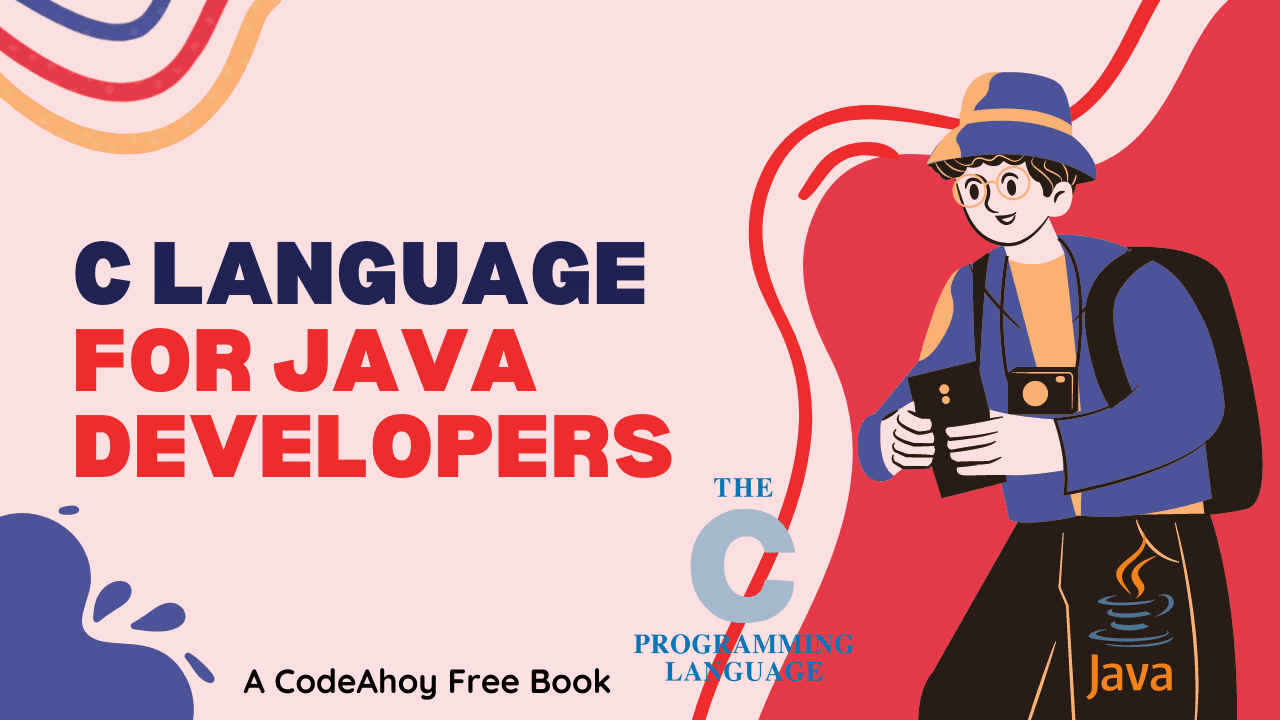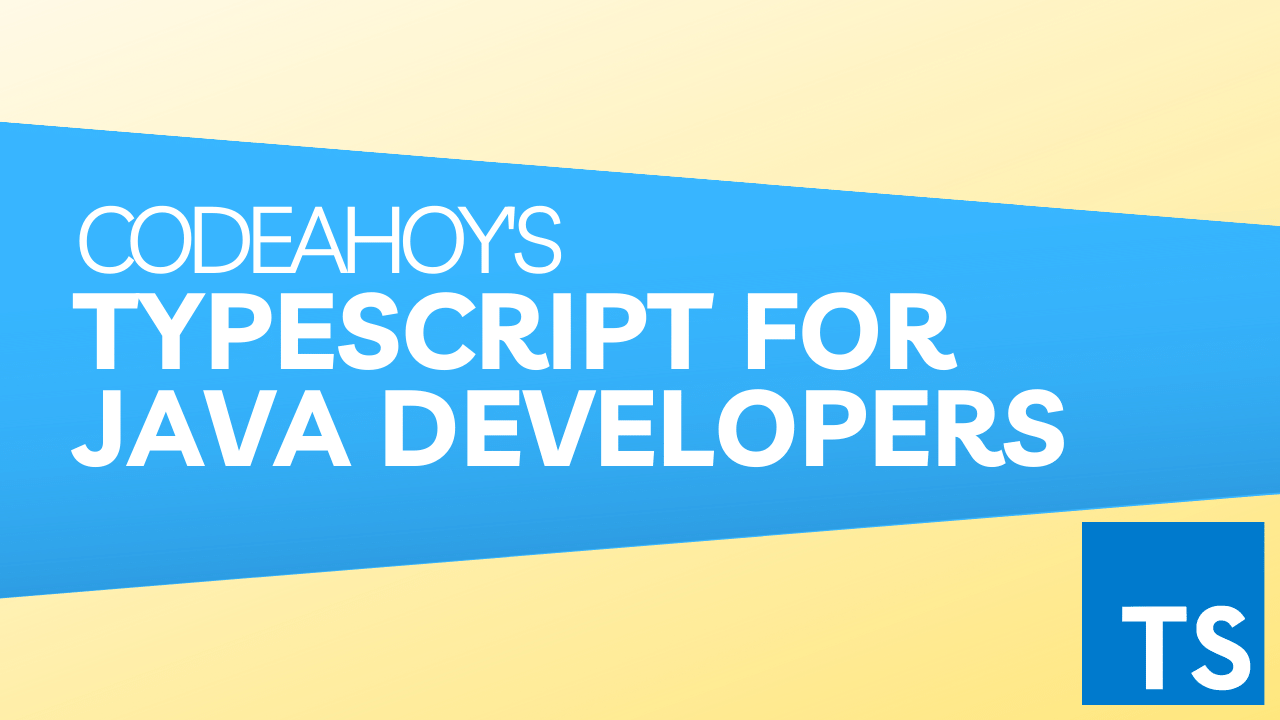Books / Introduction to C Programming Language / Chapter 30
Generic containers
The first rule of programming is that you should never write the same code twice. Suppose that you happen to have lying around a dictionary type whose keys are ints and whose values are strings. Tomorrow you realize that what you really want is a dictionary type whose keys are strings and whose values are ints, or one whose keys are ints but whose values are stacks. If you have n different types that may appear as keys or values, can you avoid writing n2 different dictionary implementations to get every possible combination?
Many languages provide special mechanisms to support generic types, where part of the type is not specified. It’s as if you could declare an array in C to be an array of some type to be determined later, and then write functions that operate on any such array without knowing what the missing type is going to be (templates in C++ are an example of such a mechanism). Unfortunately, C does not provide generic types. But by aggressive use of function pointers and void *, it is possible to fake them.
In this chapter
Generic dictionary: interface
Below is an example of an interface to a generic dictionary type for storing maps from constant values to constant values. The void * pointers are used to avoid having to declare exactly what kinds of keys and values the dictionary will contain.
/* Set dict[key] = value. */
/* Both key and value are copied internally. */
/* If data is the null pointer, remove dict[key]. */
void dictSet(Dict d, const void *key, const void *value);
/* Return dict[key], or null if dict[key] has not been set. */
const void *dictGet(Dict d, const void *key);
We’ll also need a constructor and destructor, but we’ll get to those in a moment. First we need to think about what dictSet and dictGet are supposed to do, and how we might possibly be able to implement them. Suppose we want to build a dictionary with strings as both keys and values. Internally, this might be represented as some sort of hash table or tree. Suppose it’s a hash table. Now, given some void *key, we’d like to be able to compute its hash value. But we don’t know what type key points to, and if we guess wrong we are likely to end up with segmentation faults or worse. So we need some way to register a hash function for our keys, whatever type they might really be behind that void *.
Similarly, we will want to be able to compare keys for equality (since not all keys that hash together will necessarily be the same), and we may want to be able to copy keys and values so that the data inside the dictionary is not modified if somebody changes a value passed in from the outside. So we need a fair bit of information about keys and values. We’ll organize all of this information in a struct made up of function pointers. (This includes a few extra components that came up while writing the implementation.)
/* Provides operations for working with keys or values */
struct dictContentsOperations {
/* hash function */
unsigned long (*hash)(const void *datum, void *arg);
/* returns nonzero if *datum1 == *datum2 */
int (*equal)(const void *datum1, const void *datum2, void *arg);
/* make a copy of datum that will survive changes to original */
void *(*copy)(const void *datum, void *arg);
/* free a copy */
void (*delete)(void *datum, void *arg);
/* extra argument, to allow further specialization */
void *arg;
};
We could write a similar but smaller struct for values, but to save a little bit of effort in the short run we’ll use the same struct for both keys and values. We can now write a constructor for our generic dictionary that consumes two such structs that provide operations for working on keys and values, respectively:
/* create a new dictionary with given key and value operations */
/* Note: valueOps.hash and valueOps.equal are not used. */
Dict dictCreate(struct dictContentsOperations keyOps,
struct dictContentsOperations valueOps);
So now to create a dict, we just need to fill in two dictContentsOperations structures. For convenience, it might be nice if dict.c provided some preloaded structures for common types like ints and strings. We can also use the arg field in struct dictContentsOperations to make the keys and values themselves be parameterized types, for example a type of byte-vectors of given length.
We can declare these various convenience structures in dict.h as
/* Some predefined dictContentsOperations structures */
/*
* DictIntOps supports int's that have been cast to (void *), e.g.:
* d = dictCreate(DictIntOps, DictIntOps);
* dictSet(d, (void *) 1, (void * 2));
* x = (int) dictGet(d, (void * 1));
*/
struct dictContentsOperations DictIntOps;
/*
* Supports null-terminated strings, e.g.:
* d = dictCreate(DictStringOps, DictStringOps);
* dictSet(d, "foo", "bar");
* s = dictGet(d, "foo");
* Note: no casts are needed since C automatically converts
* between (void *) and other pointer types.
*/
struct dictContentsOperations DictStringOps;
/*
* Supports fixed-size blocks of memory, e.g.:
* int x = 1;
* int y = 2;
* d = dictCreate(dictMemOps(sizeof(int)), dictMemOps(sizeof(int));
* dictSet(d, &x, &y);
* printf("%d", *dictGet(d, &x);
*/
struct dictContentsOperations dictMemOps(int size);
We’ll define the operations in DictIntOps to expect ints cast directly to void *, the operations in DictStringOps to expect char * cast to void *, and the operations in dictMemOps(size) will expect void * arguments pointing to blocks of the given size. There is a subtle difference between a dictionary using DictIntOps and dictMemOps(sizeof(int)); in the former case, keys and values are the ints themselves (after being case), which in the latter, keys and values are pointers to ints.
Implementations of these structures can be found below.
To make a dictionary that maps strings to ints, we just call:
d = dictCreate(DictStringOps, DictIntOps);
and then we can do things like:
dictSet(d, "foo", (void *) 2);
v = (int) dictGet(d, "foo');
If we find ourselves working with an integer-valued dictionary a lot, we might want to define a few macros or inline functions to avoid having to type casts all the time.
Generic dictionary: implementation
To implement our generic dictionary, we just take our favorite non-generic hash table, and replace any calls to fixed hash functions, copier, free, etc. with calls to elements of the appropriate structure. The result is shown below.
typedef struct dict *Dict;
/* Provides operations for working with keys or values */
struct dictContentsOperations {
/* hash function */
unsigned long (*hash)(const void *datum, void *arg);
/* returns nonzero if *datum1 == *datum2 */
int (*equal)(const void *datum1, const void *datum2, void *arg);
/* make a copy of datum that will survive changes to original */
void *(*copy)(const void *datum, void *arg);
/* free a copy */
void (*delete)(void *datum, void *arg);
/* extra argument, to allow further specialization */
void *arg;
};
/* create a new dictionary with given key and value operations */
/* Note: valueOps.hash and valueOps.equal are not used. */
Dict dictCreate(struct dictContentsOperations keyOps,
struct dictContentsOperations valueOps);
/* free a dictionary and all the space it contains */
/* This will call the appropriate delete function for all keys and */
/* values. */
void dictDestroy(Dict d);
/* Set dict[key] = value. */
/* Both key and value are copied internally. */
/* If data is the null pointer, remove dict[key]. */
void dictSet(Dict d, const void *key, const void *value);
/* Return dict[key], or null if dict[key] has not been set. */
const void *dictGet(Dict d, const void *key);
/* Some predefined dictContentsOperations structures */
/*
* DictIntOps supports int's that have been cast to (void *), e.g.:
* d = dictCreate(DictIntOps, DictIntOps);
* dictSet(d, (void *) 1, (void * 2));
* x = (int) dictGet(d, (void * 1));
*/
struct dictContentsOperations DictIntOps;
/*
* Supports null-terminated strings, e.g.:
* d = dictCreate(DictStringOps, DictStringOps);
* dictSet(d, "foo", "bar");
* s = dictGet(d, "foo");
* Note: no casts are needed since C automatically converts
* between (void *) and other pointer types.
*/
struct dictContentsOperations DictStringOps;
/*
* Supports fixed-size blocks of memory, e.g.:
* int x = 1;
* int y = 2;
* d = dictCreate(dictMemOps(sizeof(int)), dictMemOps(sizeof(int));
* dictSet(d, &x, &y);
* printf("%d", *dictGet(d, &x);
*/
struct dictContentsOperations dictMemOps(int size);
#include <stdlib.h>
#include <string.h>
#include "dict.h"
struct dictElt {
unsigned long hash; /* full hash of key */
void *key;
void *value;
struct dictElt *next;
};
struct dict {
int tableSize; /* number of slots in table */
int numElements; /* number of elements */
struct dictElt **table; /* linked list heads */
/* these save arguments passed at creation */
struct dictContentsOperations keyOps;
struct dictContentsOperations valueOps;
};
#define INITIAL_TABLESIZE (16)
#define TABLESIZE_MULTIPLIER (2)
#define TABLE_GROW_DENSITY (1)
Dict
dictCreate(struct dictContentsOperations keyOps,
struct dictContentsOperations valueOps)
{
Dict d;
int i;
d = malloc(sizeof(*d));
if(d == 0) return 0;
d->tableSize = INITIAL_TABLESIZE;
d->numElements = 0;
d->keyOps = keyOps;
d->valueOps = valueOps;
d->table = malloc(sizeof(*(d->table)) * d->tableSize);
if(d->table == 0) {
free(d);
return 0;
}
for(i = 0; i < d->tableSize; i++) d->table[i] = 0;
return d;
}
void
dictDestroy(Dict d)
{
int i;
struct dictElt *e;
struct dictElt *next;
for(i = 0; i < d->tableSize; i++) {
for(e = d->table[i]; e != 0; e = next) {
next = e->next;
d->keyOps.delete(e->key, d->keyOps.arg);
d->valueOps.delete(e->value, d->valueOps.arg);
free(e);
}
}
free(d->table);
free(d);
}
/* return pointer to element with given key, if any */
static struct dictElt *
dictFetch(Dict d, const void *key)
{
unsigned long h;
int i;
struct dictElt *e;
h = d->keyOps.hash(key, d->keyOps.arg);
i = h % d->tableSize;
for(e = d->table[i]; e != 0; e = e->next) {
if(e->hash == h && d->keyOps.equal(key, e->key, d->keyOps.arg)) {
/* found it */
return e;
}
}
/* didn't find it */
return 0;
}
/* increase the size of the dictionary, rehashing all table elements */
static void
dictGrow(Dict d)
{
struct dictElt **old_table;
int old_size;
int i;
struct dictElt *e;
struct dictElt *next;
int new_pos;
/* save old table */
old_table = d->table;
old_size = d->tableSize;
/* make new table */
d->tableSize *= TABLESIZE_MULTIPLIER;
d->table = malloc(sizeof(*(d->table)) * d->tableSize);
if(d->table == 0) {
/* put the old one back */
d->table = old_table;
d->tableSize = old_size;
return;
}
/* else */
/* clear new table */
for(i = 0; i < d->tableSize; i++) d->table[i] = 0;
/* move all elements of old table to new table */
for(i = 0; i < old_size; i++) {
for(e = old_table[i]; e != 0; e = next) {
next = e->next;
/* find the position in the new table */
new_pos = e->hash % d->tableSize;
e->next = d->table[new_pos];
d->table[new_pos] = e;
}
}
/* don't need this any more */
free(old_table);
}
void
dictSet(Dict d, const void *key, const void *value)
{
int tablePosition;
struct dictElt *e;
e = dictFetch(d, key);
if(e != 0) {
/* change existing setting */
d->valueOps.delete(e->value, d->valueOps.arg);
e->value = value ? d->valueOps.copy(value, d->valueOps.arg) : 0;
} else {
/* create new element */
e = malloc(sizeof(*e));
if(e == 0) abort();
e->hash = d->keyOps.hash(key, d->keyOps.arg);
e->key = d->keyOps.copy(key, d->keyOps.arg);
e->value = value ? d->valueOps.copy(value, d->valueOps.arg) : 0;
/* link it in */
tablePosition = e->hash % d->tableSize;
e->next = d->table[tablePosition];
d->table[tablePosition] = e;
d->numElements++;
if(d->numElements > d->tableSize * TABLE_GROW_DENSITY) {
/* grow and rehash */
dictGrow(d);
}
}
}
const void *
dictGet(Dict d, const void *key)
{
struct dictElt *e;
e = dictFetch(d, key);
if(e != 0) {
return e->value;
} else {
return 0;
}
}
/* int functions */
/* We assume that int can be cast to void * and back without damage */
static unsigned long dictIntHash(const void *x, void *arg) { return (int) x; }
static int dictIntEqual(const void *x, const void *y, void *arg)
{
return ((int) x) == ((int) y);
}
static void *dictIntCopy(const void *x, void *arg) { return (void *) x; }
static void dictIntDelete(void *x, void *arg) { ; }
struct dictContentsOperations DictIntOps = {
dictIntHash,
dictIntEqual,
dictIntCopy,
dictIntDelete,
0
};
/* common utilities for string and mem */
static unsigned long hashMem(const unsigned char *s, int len)
{
unsigned long h;
int i;
h = 0;
for(i = 0; i < len; i++) {
h = (h << 13) + (h >> 7) + h + s[i];
}
return h;
}
static void dictDeleteFree(void *x, void *arg) { free(x); }
/* string functions */
static unsigned long dictStringHash(const void *x, void *arg)
{
return hashMem(x, strlen(x));
}
static int dictStringEqual(const void *x, const void *y, void *arg)
{
return !strcmp((const char *) x, (const char *) y);
}
static void *dictStringCopy(const void *x, void *arg)
{
const char *s;
char *s2;
s = x;
s2 = malloc(sizeof(*s2) * (strlen(s)+1));
strcpy(s2, s);
return s2;
}
struct dictContentsOperations DictStringOps = {
dictStringHash,
dictStringEqual,
dictStringCopy,
dictDeleteFree,
0
};
/* mem functions */
static unsigned long dictMemHash(const void *x, void *arg)
{
return hashMem(x, (int) arg);
}
static int dictMemEqual(const void *x, const void *y, void *arg)
{
return !memcmp(x, y, (size_t) arg);
}
static void *dictMemCopy(const void *x, void *arg)
{
void *x2;
x2 = malloc((size_t) arg);
memcpy(x2, x, (size_t) arg);
return x2;
}
struct dictContentsOperations
dictMemOps(int len)
{
struct dictContentsOperations memOps;
memOps.hash = dictMemHash;
memOps.equal = dictMemEqual;
memOps.copy = dictMemCopy;
memOps.delete = dictDeleteFree;
memOps.arg = (void *) len;
return memOps;
}
And here is some test code and a Makefile: test-dict.c, tester.h, tester.c, Makefile.




